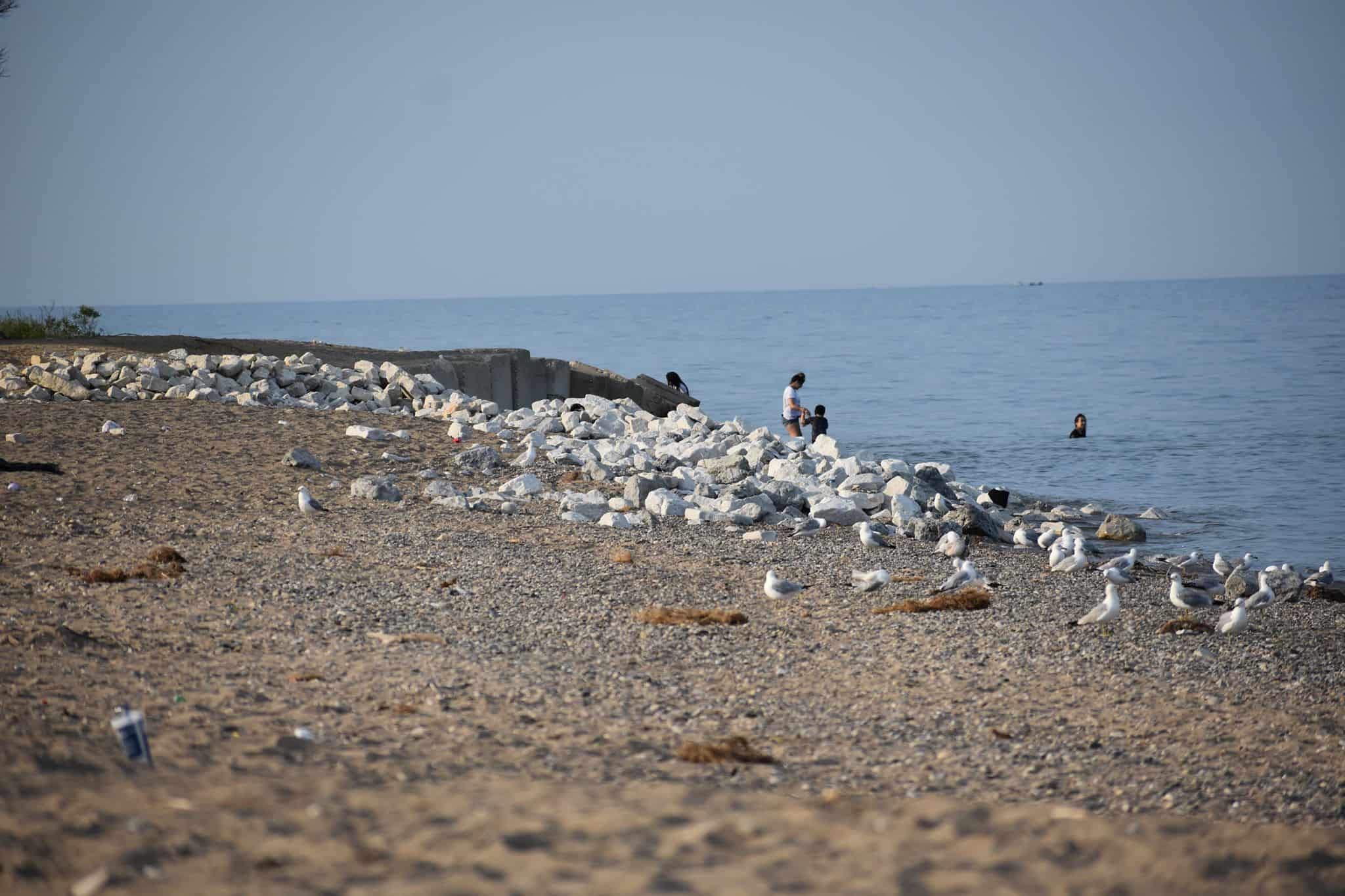Jury begins deliberations on class action lawsuit filed by Sunday Ticket subscribers against NFL

JOE REEDY, Associated Press
28 mins ago

FILE – The NFL logo is seen during the NFL Super Bowl 58 football game, Sunday, Feb. 11, 2024, in Las Vegas. Opening arguments are expected to begin Thursday, June 6, 2024, in federal court in a class action lawsuit filed by “Sunday Ticket” subscribers claiming the NFL violated antitrust laws. The lawsuit was filed in 2015 and has withstood numerous challenges, including a dismissal that was overturned. (AP Photo/Adam Hunger, File)
LOS ANGELES (AP) — The NFL explored a world without “Sunday Ticket” in 2017, in which cable channels broadcast games outside their market on Sunday afternoons that were not shown on Fox or CBS.
The league’s memo was shown by plaintiffs during their closing arguments Wednesday as the jury began deliberations in the class action lawsuit filed by Sunday Ticket subscribers.
Following instructions from U.S. District Judge Philip Gutierrez, the jury heard closing arguments from the plaintiffs in the morning. After lunch, the NFL delivered its closing arguments before the plaintiffs had 20 minutes to rebut their arguments.
In a three-week trial that included testimony from NFL Commissioner Roger Goodell and Dallas Cowboys owner Jerry Jones, one of the biggest highlights was the April 21, 2017, memo titled “NFL New Frontier.”
The memo was a reinterpretation of Sunday afternoons when each game would be televised or broadcast on cable. Fox and CBS would have paid 25% less per game (roughly $10 million per game), while cable networks would have paid $9 million per game, which was the average payout DirecTV made in its contract with the league.
The numbers refer to rights that expire after the 2022 season. With contracts that began last season, these averages would be higher now.
The league memo showed early games on FS1, ESPN, ESPN2, TBS, TNT, NFL Network and CBS Sports Network, and late games on FS1, TBS and TNT.
“The NFL knew it was underserving 35 million fans,” said William Carmody, one of the plaintiffs’ attorneys, in his closing argument. “We’re holding them accountable. This is about telling the 32 team owners that not even they can break antitrust laws and take advantage of fans. It’s not OK to compete on the field but collude off the field.”
However, some of the games that are not available in their market segment according to the NFL memorandum would not be broadcast on basic cable. Fans and cable companies would also cover some of the costs through higher subscription fees.
The lawsuit affects 2.4 million residential customers and 48,000 businesses who paid for the package of out-of-market games from the 2011 through 2022 seasons on DirecTV. It claims the league violated antitrust laws by selling its package of Sunday games at an inflated price. Subscribers also say the league restricted competition by offering “Sunday Ticket” only through a satellite provider.
The league claims it has the right to sell “Sunday Ticket” under its antitrust exemption for broadcast television. Plaintiffs say that applies only to terrestrial broadcasts, not pay TV.
Beth Wilkinson, the NFL’s lead attorney, said the league has not disputed that Sunday Ticket is a premium product and that it has always been marketed that way.
She also pointed out that representatives of the league and broadcasters have stated that the current model makes the most sense.
“The Sunday Ticket offers more choice. You have the choice, you know the price and you pay for it,” she said.
Even if the jury of five men and three women rules in favor of the plaintiffs, Gutierrez could still rule in favor of the NFL, claiming the plaintiffs have failed to prove their case.
DirecTV carried Sunday Ticket from its launch in 1994 through 2022. The league signed a seven-year deal with Google’s YouTube TV that began with the 2023 season.
If the NFL is found liable, a jury could award $7 billion in damages, but that figure could rise to $21 billion because antitrust litigation can triple the damages. It would also change how the league would have to distribute its broadcasts outside of its market and could lead to renegotiations of contracts with Fox and CBS. The league’s current agreements run through the 2033 season.
CBS and Fox together pay an average of $4.3 billion per season for Sunday afternoon games, while YouTube TV pays an average of $2 billion per season for the “Sunday Ticket” rights.
The lawsuit was originally filed in 2015 by San Francisco sports bar Mucky Duck but was dismissed in 2017. Two years later, the 9th U.S. Circuit Court of Appeals, which covers California and eight other states, reopened the case. Gutierrez ruled last year that the case could proceed as a class action lawsuit.
Whatever the final decision, the losing side is expected to appeal to the 9th Circuit and then possibly to the Supreme Court.
___
AP NFL: https://apnews.com/hub/nfl



